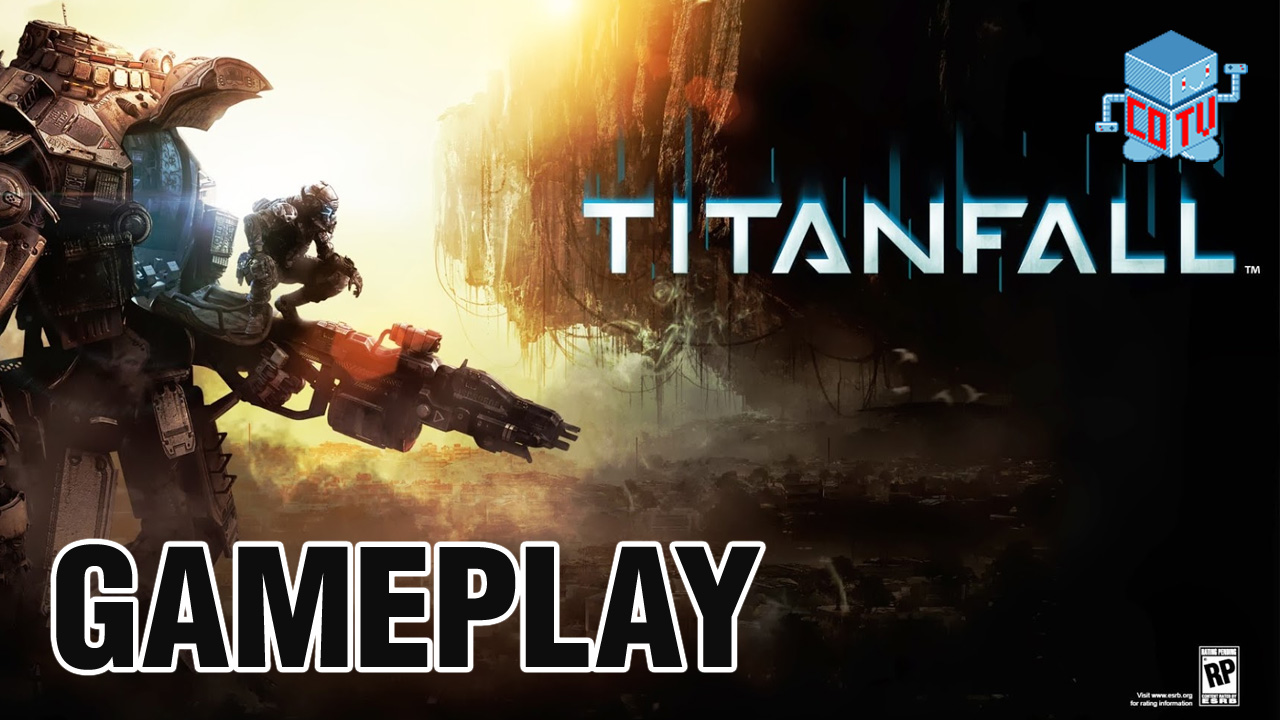A few years back when all of the crazy news began filtering out of developer Infinity Ward and publisher Activision no one would have dreamed that the minds behind one of the most revolutionary games in the competitive multiplayer environment, Call of Duty 4: Modern Warfare, would soon be out of a job and creating a new studio from nothing, but so the scenario played out and former IW staffers grouped together with former IW heads Jason West and Vince Zampella to form Respawn Entertainment, with the obvious (but not as publicly acknowledged) goal to dethrone their previous work and usher in the “next generation” of competitive multiplayer shooter. When E3 arrived last year there were whisperings that Respawn’s first-ever game might be ready for a big reveal, and those whispers were right. Titanfall was debuted at Microsoft’s E3 press conference and given a release of March 2014 for Xbox One, Xbox 360, and PC.
With the backstory out of the way and the game officially out the question remains; did Respawn create a revolution in the competitive multiplayer first person shooter genre? A genre which has grown stale over the past few years with the annual releases of Call of Duty and other franchises seemingly mostly happy with just adding another number to the title. The answer? Not quite. As a good friend put it, Titanfall is more of an evolution of the genre and not quite the revolution Call of Duty 4 was. Titanfall is a fantastic game, and one that should help sell more than a few Xbox One consoles, but if you aren’t into military first person shooters (even now with mechs and parkour) you’ll likely not be into TitanFall either.
The game is multiplayer and online only, meaning you’ll need an active internet connection to play. The “campaign” is made up of a handful of missions where you play as either the Militia or the IMC in a series of multiplayer matches that are narrated by characters in the game. Overall it’s not that great, but it does give you the chance to get familiar with the modes and maps before diving right into full multiplayer. You’ll need to make it through the campaign from both sides to unlock the ability to customize two of the three Titans.
The base multiplayer is where this game thrives. It has a handful of modes including your typical team deathmatch style play, capture the flag, hardpoint (capture the points), Last Titan Standing (everyone in Titans, one life per round), etc. I think the game lends itself a bit better to the objective modes, but deathmatch is always fun to just sit back and kill. The selling point of Titanfall, and what makes the game so interesting, is the dynamic between the players running around the map on foot using the fantastic parkour and the Titans moving around the maps’ more open areas battling each other and avoiding fire from players on foot in buildings. It creates controllable mayhem. You feel super fluid and in control when parkouring through the streets and using verticality to your advantage as a pilot, but you also feel a sense of calm when you finally board your Titan and begin the almost chess-like mind games with the other Titans on the map. The gameplay here is what makes the game shine. Titans blasting rockets at each other while pilots parkour above and around them taking out each other (or occasionally getting stepped on by the Titans) and using anti-Titan weapons to assist their teammates is a fantastic sight to behold and extremely fun to play.
As far as systems go, Titanfall matches most modern shooters in that there is a traditional leveling system in which you unlock more guns, attachments and items the more you rank up. There didn’t seem to be as many choices and unlocks as Call of Duty, but I felt that Titanfall’s weapons were a bit more diverse, each filling a category and none feeling like “oh, it’s just another ____.” As far as play spaces go, the maps in Titanfall are fantastic. It’s been a while since I’ve loved map design in a competitive shooter and it feels great to finally get a game that does nearly every map correctly, and has them all look and feel completely different. You go from warehouses to tropical locations to robotics factories and they all play and work nearly perfect. Added traversal methods like ziplines and set pieces like winged monsters make each map feel like it has its own identity. I have yet to play a map yet that I hate, and that’s saying something.
Titanfall is a game that has opened the door to a new experience in the midst of the next generation of consoles. It begins to ask gamers to decide what $60 should buy you (more content, or more time invested, what does worth mean to you?) and sets precedence for past games (like Call of Duty) to begin exploring new business models. When it boils down to it, Titanfall is a very good evolution of the first person competitive multiplayer shooter and cements itself (even as a new IP) as a franchise to be reckoned with in the genre by providing exciting gameplay, fantastic level design, an enticing unlock system, and overall is an injection of life into a genre that had been stale for many years. It may not be the revolution that Call of Duty 4 was, but it’s certainly a game worth owning an Xbox One (or 360/PC) for, and one a lot of people will be bingeing on at the very least until the next Call of Duty comes out, maybe even longer. Titanfall may not sway you if you hate military first person shooters, but if you’ve been looking for a shooter that is new and interesting from a group of people who know their stuff Titanfall may provide just what you’re looking for.
Titanfall Launch Trailer
https://www.youtube.com/watch?v=kk9wzHHHQ_g
